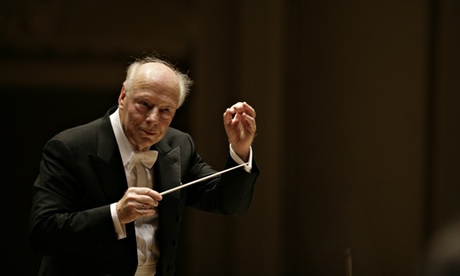
One of the essential arts of Bruckner conducting is to know when to take a breath and when to press on while avoiding wilfulness in either direction. This is a crucial requirement in the deeply troubled C minor Eighth Symphony, which is very long and constructed out of multiple paragraphs.
Experience suggests that this flexible art comes with age and long familiarity. It is an art that Bernard Haitink now possesses more than any other living conductor. It was magnificently present throughout this performance of the Eighth, in the now customary Nowak edition, with the London Symphony Orchestra. It was quite simply a privilege to hear such Brucknerian mastery at work.
Haitink also understands that none of Bruckner’s symphonies is worse served by all the stock cliches about sonic cathedrals and religious glory than the Eighth. Bruckner’s last completed symphony is a work of doubt as much as certainty. Its constant symphonic striving, often through long periods of minor-key anxiety and darkness, advances towards a summation that it longs for but which it never quite manages to attain convincingly or for long. Haitink allowed all the painful honesty of this work to unfold from the first bars to the last, but it was never more truthful than in the long and hesitant descent from the climax of the slow movement that, characteristically, is gone as soon as it arrives.
As always with Haitink, orchestral textures were scrupulously balanced, which made the roles of the timpani, a permanent force for disturbance in this work, and the harps, equally importantly a force for consolation, come through with great expressive clarity. It is one of music’s enduring mysteries how one conductor can get an orchestra to play out of their skins with a minimum of histrionic fuss, while another can’t get close with any amount of flailing. All one can say is that Haitink has this secret, and that the LSO played like lions for him. And so they should.

